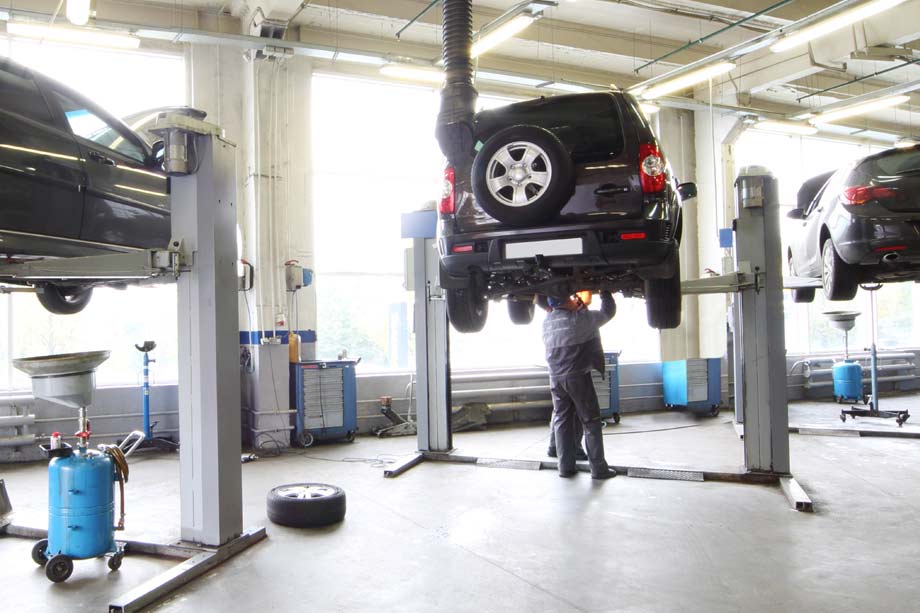All Categories
Featured
Regular tire turnings are an important yet commonly neglected element of lorry upkeep. This easy treatment, which involves altering the position of your tires, helps keep even use throughout all four tires, inevitably enhancing your lorry's efficiency and durability. Let's discover the relevance of tire turnings and the substantial benefits they give.
What Is a Tire Turning?
![]()
Tire turning entails relocating the tires to various positions on your car. The front tires may be exchanged with the back ones, or they might be crossed from one side of the car to the other. The rotation pattern depends on elements like your automobile's drivetrain (front-wheel drive, rear-wheel drive, or four-wheel drive) and the sort of tires you use.
Why Are Normal Tire Turnings Important?
Tire rotations make sure that all tires wear down uniformly. Because various tires experience differing degrees of tension based on their placement, irregular tire wear happens naturally. For instance:
Front tires on front-wheel-drive lorries manage more tasks like steering, stopping, and acceleration, triggering them to use faster.
Back tires on rear-wheel-drive lorries bear comparable concerns, resulting in irregular wear patterns if left uncontrolled.
![]()
Without normal rotations, some tires may put on out too soon, necessitating substitute sooner than anticipated.
Benefits of Normal Tire Rotations
Improved Efficiency and Handling. Also tire wear helps preserve balanced grip throughout all four tires. This balance is crucial for optimal vehicle handling, specifically in challenging driving conditions such as rain or snow.
Extended Tire Life Expectancy. Regular turnings distribute wear more uniformly, lowering the need for regular replacements and saving you money in the future.
![]()
Better Fuel Performance. Unevenly worn tires can enhance moving resistance, requiring your engine to function harder and take in more fuel. Correctly revolved tires guarantee smoother rides and far better fuel economic climate.
Safety. Worn tires compromise hold and stopping efficiency, enhancing the danger of crashes. Turning your tires consistently maintains constant step depth and guarantees a safer driving experience.
Just How Often Should You Rotate Your Tires?
The majority of specialists advise revolving your tires every 5,000 to 7,500 miles, but this can differ based on your lorry's maker guidelines. It's an excellent method to combine tire turnings with routine services like oil adjustments for convenience.
Signs You Need a Tire Turning
Uneven step wear on your tires.
Obvious resonance while driving.
Difficulty handling the car on wet or unsafe roads.
Final Ideas
Routine tire turnings are a simple yet impactful maintenance task that boosts car performance, improves safety, and conserves you cash. By committing to this practice, you'll appreciate a smoother driving experience and a much longer life expectancy for your tires. Consult your lorry's handbook or a relied on auto mechanic to ensure you're following the best rotation routine and pattern for your vehicle.
What Is a Tire Turning?

Tire turning entails relocating the tires to various positions on your car. The front tires may be exchanged with the back ones, or they might be crossed from one side of the car to the other. The rotation pattern depends on elements like your automobile's drivetrain (front-wheel drive, rear-wheel drive, or four-wheel drive) and the sort of tires you use.
Why Are Normal Tire Turnings Important?
Tire rotations make sure that all tires wear down uniformly. Because various tires experience differing degrees of tension based on their placement, irregular tire wear happens naturally. For instance:
Front tires on front-wheel-drive lorries manage more tasks like steering, stopping, and acceleration, triggering them to use faster.
Back tires on rear-wheel-drive lorries bear comparable concerns, resulting in irregular wear patterns if left uncontrolled.

Without normal rotations, some tires may put on out too soon, necessitating substitute sooner than anticipated.
Benefits of Normal Tire Rotations
Improved Efficiency and Handling. Also tire wear helps preserve balanced grip throughout all four tires. This balance is crucial for optimal vehicle handling, specifically in challenging driving conditions such as rain or snow.
Extended Tire Life Expectancy. Regular turnings distribute wear more uniformly, lowering the need for regular replacements and saving you money in the future.
Better Fuel Performance. Unevenly worn tires can enhance moving resistance, requiring your engine to function harder and take in more fuel. Correctly revolved tires guarantee smoother rides and far better fuel economic climate.
Safety. Worn tires compromise hold and stopping efficiency, enhancing the danger of crashes. Turning your tires consistently maintains constant step depth and guarantees a safer driving experience.
Just How Often Should You Rotate Your Tires?
The majority of specialists advise revolving your tires every 5,000 to 7,500 miles, but this can differ based on your lorry's maker guidelines. It's an excellent method to combine tire turnings with routine services like oil adjustments for convenience.
Signs You Need a Tire Turning
Uneven step wear on your tires.
Obvious resonance while driving.
Difficulty handling the car on wet or unsafe roads.
Final Ideas
Routine tire turnings are a simple yet impactful maintenance task that boosts car performance, improves safety, and conserves you cash. By committing to this practice, you'll appreciate a smoother driving experience and a much longer life expectancy for your tires. Consult your lorry's handbook or a relied on auto mechanic to ensure you're following the best rotation routine and pattern for your vehicle.
Latest Posts
Why Choose Montana Fence for Your Fence Requirements
Published May 13, 25
1 min read
Enhance Your Building with Expenses Door Solution
Published May 13, 25
1 min read
Need the Best Auto Shop in St. Louis? Experience Excellence at Car-X St. Louis
Published May 13, 25
1 min read